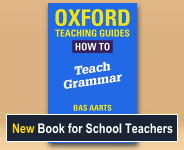National Curriculum KS4: Reading
Pupils should be taught to:
- read and appreciate the depth and power of the English literary heritage through:
- reading a wide range of high-quality, challenging, classic literature and extended
literary non-fiction, such as essays, reviews and journalism. This writing should
include whole texts. The range will include:
- at least one play by Shakespeare
- works from the 19th, 20th and 21st centuries
- poetry since 1789, including representative Romantic poetry
- re-reading literature and other writing as a basis for making comparisons
- choosing and reading books independently for challenge, interest and enjoyment.
- reading a wide range of high-quality, challenging, classic literature and extended
literary non-fiction, such as essays, reviews and journalism. This writing should
include whole texts. The range will include:
- understand and critically evaluate texts through:
- reading in different ways for different purposes, summarising and synthesising ideas and information, and evaluating their usefulness for particular purposes
- drawing on knowledge of the purpose, audience for and context of the writing, including its social, historical and cultural context and the literary tradition to which it belongs, to inform evaluation
- identifying and interpreting themes, ideas and information
- exploring aspects of plot, characterisation, events and settings, the relationships between them and their effects
- seeking evidence in the text to support a point of view, including justifying inferences with evidence
- distinguishing between statements that are supported by evidence and those that are not, and identifying bias and misuse of evidence
- analysing a writer’s choice of vocabulary, form, grammatical and structural features, and evaluating their effectiveness and impact
- making critical comparisons, referring to the contexts, themes, characterisation, style and literary quality of texts, and drawing on knowledge and skills from wider reading
- make an informed personal response, recognising that other responses to a text are possible and evaluating these.
Welcome!

Englicious is totally free for everyone to use!
But in exchange, we ask that you register for an account on our site.
If you’ve already registered, you can log in straight away.
Since this is your first visit today, you can see this page by clicking the button below.
»
- Printer-friendly version
- Log in to view or leave comments

